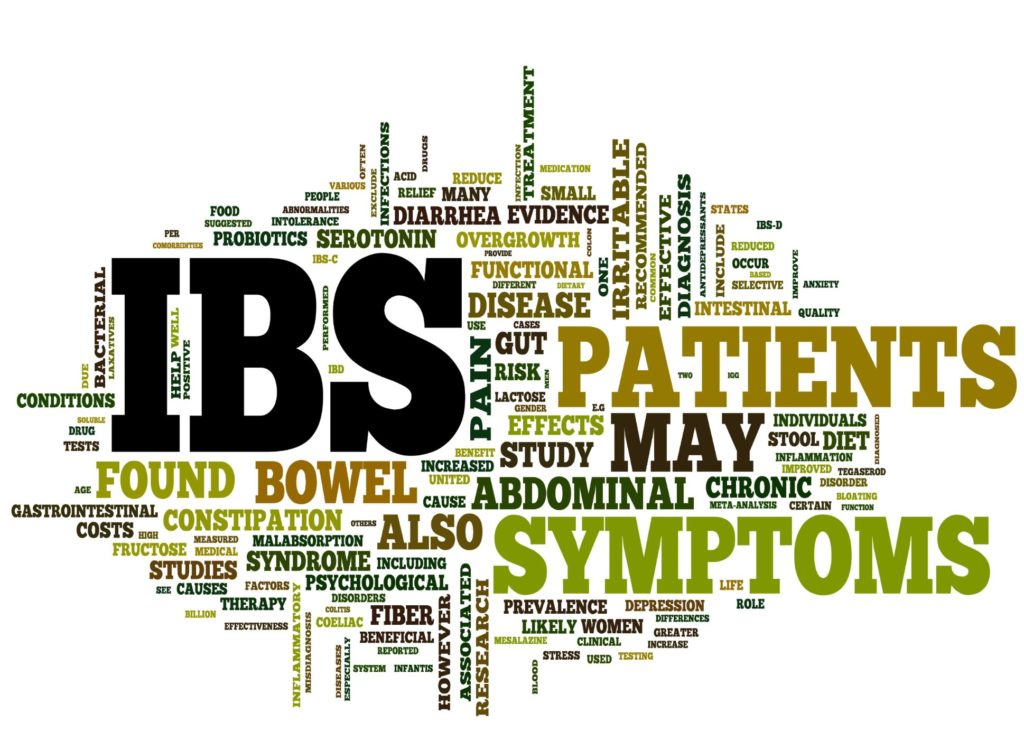
Irritable bowel syndrome (IBS) is a disorder characterized by abdominal pain or discomfort, and altered bowel habit (chronic or recurrent diarrhea, constipation, or both – either mixed or in alternation). But what many people don’t know is that there are three different types of IBS that affect between 25 and 45 million people in the United States. The three types are grouped by the main bowel problem that you have: 1) IBS-D (diarrhea); 2) IBS-C (constipation); and 3) IBS-A (alternating), also known as A-IBS and IBS-M (mixed type). Learn more about the three types of IBS and how to treat them
IBS with diarrhea (IBS-D)
One type of IBS is referred to IBS with diarrhea (IBS-D). The perimeters for this type of IBS are:
- more than a quarter of your stools are loose or watery and
- less than a quarter of your stools are hard or lumpy
Abdominal pain is a common condition with IBS. Changes in the consistency of stool or the prevalence of it can trigger these painful stomach symptoms. Irregular bowel habits with recurrent diarrhea can cause many to suffer from feelings of nausea and fatigue. Some people with IBS-D will have both diarrhea and constipation, just at alternating times. Bloating or distention in the abdomen is a common complaint.
IBS with constipation (IBS-C)
IBS with constipation, referred to as IBS-C, is when:
- more than a quarter of your stools are hard or lumpy and
- less than a quarter of your stools are loose or watery
Constipation causes similar symptoms as diarrhea, such as bloating, stomach pain and distress. One of the best treatments for this type of IBS is diet and lifestyle modification. Getting to the source of your constipation triggers can be achieved more successfully with professional gut testing and functional medicine protocols.
IBS with mixed bowel habits (IBS-M)
Many patients will have what’s called mixed bowel habits IBS or IBS-M. This is classified by:
- more than a quarter of your stools are hard or lumpy and
- more than a quarter of your stools are loose or watery
Trying to solve for a wide range of bowel habits can add some challenges, but the first order of business is identifying what is causing the dysfunction in the first place.
IBS Statistics
If you are an IBS sufferer and feel like you are part of a small crowd, think again. Actually, studies indicate that 12 percent of Americans have IBS. Of that 12 percent, there isn’t one type of IBS that is more prevalent than another. Rather, there is roughly an equal number of people within each IBS category type. Most people with IBS will go back and forth between types.
How to Treat IBS
Some of the most common treatment methods for IBS include: 1) diet and lifestyle modifications; 2) medicines; 3) probiotics; 4) and mental health therapies to reduce stress; and 5) a combination of all four of these. Discovering what treatment approach works best for you is something that Balanced Well-Being Healthcare helps you find.
The National Institute of Diabetes and Digestive and Kidney Diseases recommends the following specific actions for fighting the symptoms of IBS:
- Eat more fiber
- Avoid gluten
- Follow a special eating plan called the low FODMAP diet
- Increasing your physical activity
- reducing stressful life situations as much as possible
- getting enough sleep
Call for a Gut Testing and IBS Consultation Today!
Learn how to combat your IBS symptoms today and how you can benefit from gut testing. Call 970-631-8286 and discover how healthy you are on a biochemical, molecular level. Learn strategies and tips to balance your body physically, mentally and emotionally so you can have what you need for total body wellness.

